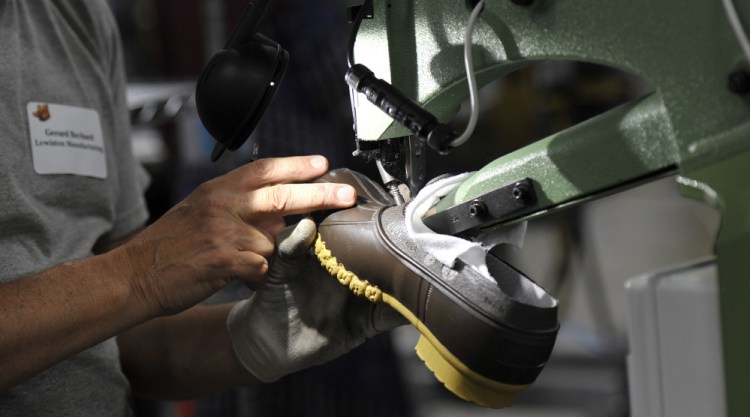L.L. Bean is one of Maine’s top five employers, but that does not begin to describe the company’s importance to its home state.
Like lobsters and lighthouses, L.L. Bean is one of the reasons people around the world have such positive feelings about Maine.
Long before there was such a thing as the Maine Office of Tourism, the Freeport-based company was sending out a catalog to hunters and fishermen all over the country, whetting their imaginations about visiting Maine and establishing a reputation for good value and fair dealing.
Those things together established a Maine brand that benefited many other businesses beside the Beans’.
That’s why last week’s unveiling of a new manufacturing facility in Lewiston was such good news. At a time when every issue appears to be riven by partisanship, this is a development that every Mainer can applaud, and something both entrepreneurs and policymakers can learn from.
Now into its second century in business, the company is continuing to find new ways to do what it has always done in the past – reach customers, grow its workforce and promote Maine as a good place to visit and do business.
On Thursday, L.L. Bean opened a new facility in Lewiston to ramp up its production of the iconic rubber-bottomed “Maine hunting shoe,” which is enjoying one of its cyclical periods of high-fashion appreciation. A decade ago, orders for the hunting boots tallied just 100,000 pairs. Next year, the company projects it can sell 1 million.
“L.L. Bean manufacturing is both our history and our future,” Executive Chairman Shawn Gorman said while addressing a crowd of dignitaries, media and employees gathered to tour the company’s new plant on Lexington Street.
More manufacturing means more good-paying jobs in Maine, spreading the benefits to local economies. Revenue raised from Bean boots that are shipped to Japan and Europe will be used to pay for groceries, real estate, cars, medical care and local taxes here, supporting a wide variety of jobs that have nothing to do with hunting or fishing.
It’s important for policymakers to pay attention to the fact that the company was founded here.
As it grew, the family invested in its Maine facilities and technology. Companies headquartered in other states would not have the same commitment to investing here, but since this was home, this is where the growth happened.
This lesson should drive economic development strategy. The state should be working to help new business get off the ground rather than trying to attract a mature business to move part of its operation here, or to prop up an incumbent industry in decline. The more seeds planted, the more likely that the next L.L. Bean will sprout.
Another important lesson comes from listening to the company’s executives when they talk about the challenges they face growing a business in Maine. They don’t complain about taxes, energy or transportation – even though they are all impediments that they must contend with.
For them, the real limitation is the size of our workforce. They can’t get enough people.
CEO Steve Smith said the company is looking to hire 40 full-time workers at the Lewiston location, and has another 130 manufacturing positions open. Why are they still vacant?
“Hiring is what is holding us back,” said Smith.
Maine has lived through a period of rapid economic change, as the nature of the kind of work most people do has moved from forestry, fishing and manufacturing to service-sector work. Aside from L.L. Bean, a list of the state’s other top employers is dominated by the names of hospitals and retail chains.
The Beans’ experience, however, shows that it’s possible to manage change and continue to thrive.
Send questions/comments to the editors.


